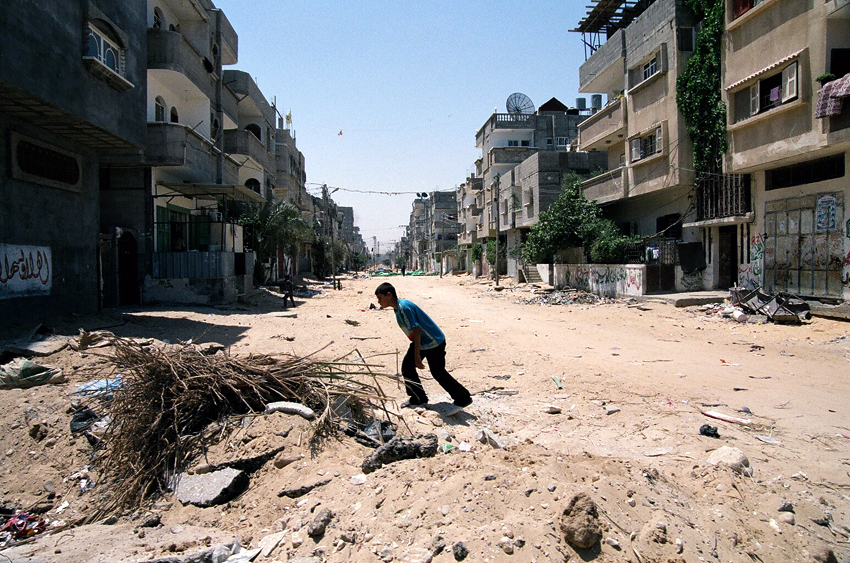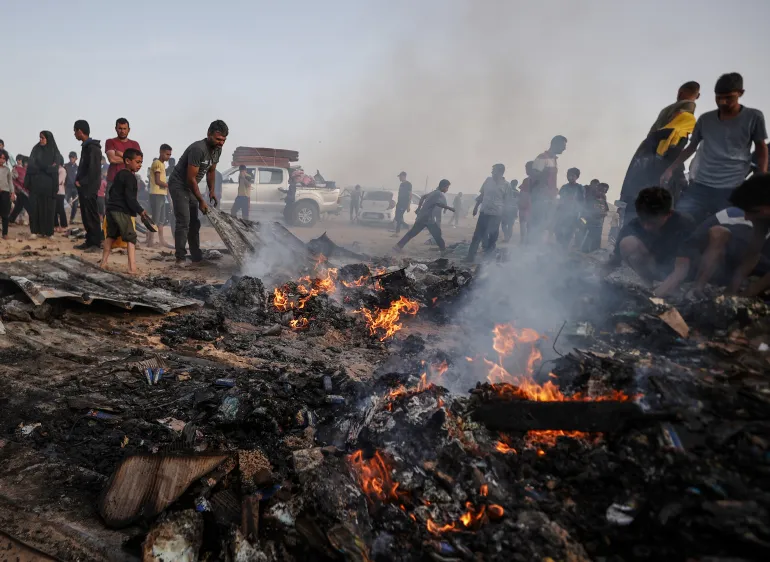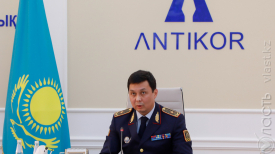- ВКонтакте
- РћРТвЂВВВВВВВВнокласснРСвЂВВВВВВВВРєРСвЂВВВВВВВВ
Осы мақаланың қазақша нұсқасын оқыңыз.
Читайте этот материал на русском.
On May 24, the International Court of Justice (ICJ) issued a ruling demanding Israel to immediately cease its military offensive in Rafah, a city in southern Gaza, describing the situation as ‘disastrous.’
Delivering the court’s ruling at The Hague, ICJ president Nawaf Salam said, “Under the Genocide Convention, Israel must immediately halt its military offensive, and any other action in the Rafah governorate.” He emphasized the potential consequences, warning against the “physical destruction” of Palestinians in Gaza.
The court mandated a cessation of Israeli military operations in the Gaza Strip, specifically in Rafah, and the complete withdrawal of Israeli forces from Gaza.
What happened?
In the aftermath of the Hamas-led attack on Israel on 7 October 2023, the Israeli government started a war in the Gaza Strip.
In the past days, direct attacks on the city of Rafah had led to dozens of civilian deaths among the Palestinian population. One Israeli air strike on May 26, just two days after the ruling, killed at least 45 people, among whom were children and patients at a Red Cross tent hospital, located within the UN-run “safe zone”.
As of May 28, ongoing Israel’s military attacks on Gaza (since October 7 last year) have killed at least 36,050 Palestinians.
On May 7, the Israeli military took control of the Gaza side of the Rafah border crossing with Egypt. The ICJ ruling ordered Israel to re-open the Rafah crossing between Egypt and Gaza to allow humanitarian aid to enter.
According to the ICJ ruling, Israel is also required to grant unrestricted access to Gaza for UN officials, fact-finding missions, and journalists investigating genocide allegations. In January, South Africa formally accused Israel of genocide against Palestinians during a hearing at the UN court.
What is happening in Rafah?
Hours after Hamas agreed to a cease-fire on May 6, Israel pushed forward with its military operation in the southern corner of the besieged Gaza Strip, Rafah, where around 1.4 million Palestinians are sheltering.
UN experts have reported that Israel has repeatedly attacked areas where evacuees were directed to seek shelter, calling its military operation in Rafah “the culmination of a seven-month long campaign to forcibly transfer and destroy Gaza’s population.”
The ICJ ruling describes the humanitarian crisis in Gaza as “disastrous”, with the majority of its land in ruins and 85% of the population internally displaced amid a crippling blockade of food, clean water, and medicine.
How did Israel react?
Israeli officials characterize the ICJ order as “ambiguous,” arguing that there is in fact room for nuance and interpretation, providing justification for Israel’s military to maintain its offensive in the southern Gaza city.
Netanyahu’s national security adviser, Tzachi Hanegbi, rejected ICJ’s claim that Israel’s military operation is genocide. “What they are asking us, is not to commit genocide in Rafah. We did not commit genocide and we will not commit genocide,” Hanegbi told Israel’s N12 TV on Saturday.
Asked whether the Rafah offensive would continue, Hanegbi said, “According to international law, we have the right to defend ourselves and the evidence is that the court is not preventing us from continuing to defend ourselves.”
Will the ICJ order make a difference?
Although the order carries legal weight, the ICJ has no enforcement power within the UN system.
The decision of the court will now undergo deliberation at the UN Security Council, offering an opportunity for collective action to enforce the court’s orders. Historically, however, the US has used its permanent seat at the Security Council to shield Israel from the consequences of violating international law.
Balkees Jarrah, at Human Rights Watch, said, “This decision opens up the possibility for relief, but only if governments use their leverage to press Israel to urgently enforce the court’s measures.”
Sanctions, although unlikely, are necessary to deter Israel from further attacks, argued Francesca Albanese, United Nations Special Rapporteur on the Occupied Palestinian Territories. “Without sanctions, Israel won’t change,” she told Italy’s Il Manifesto earlier in May.
In response to the latest deadly attack on Rafah, Albanese said on X: “This cruelty, along with blatant defiance of the [international] law and system, is unacceptable.”
Поддержите журналистику, которой доверяют.









